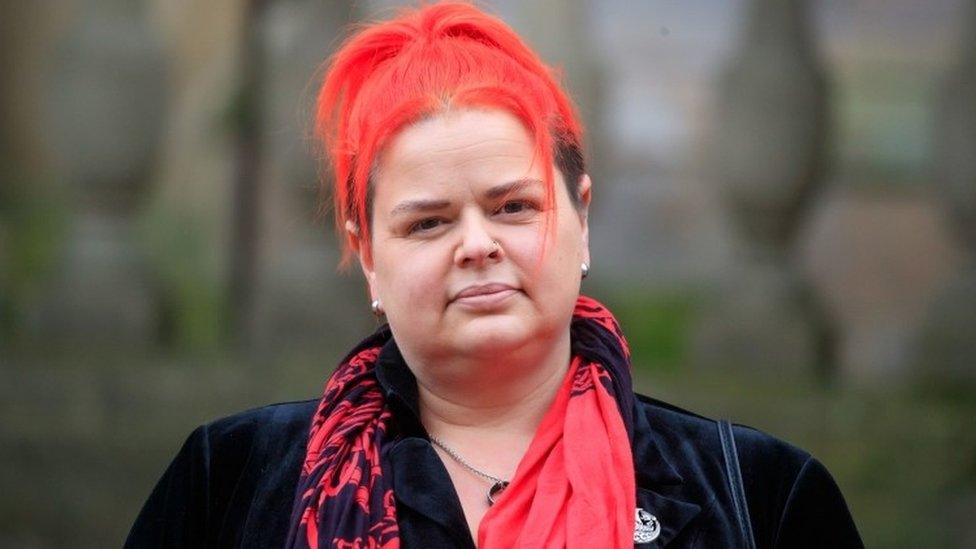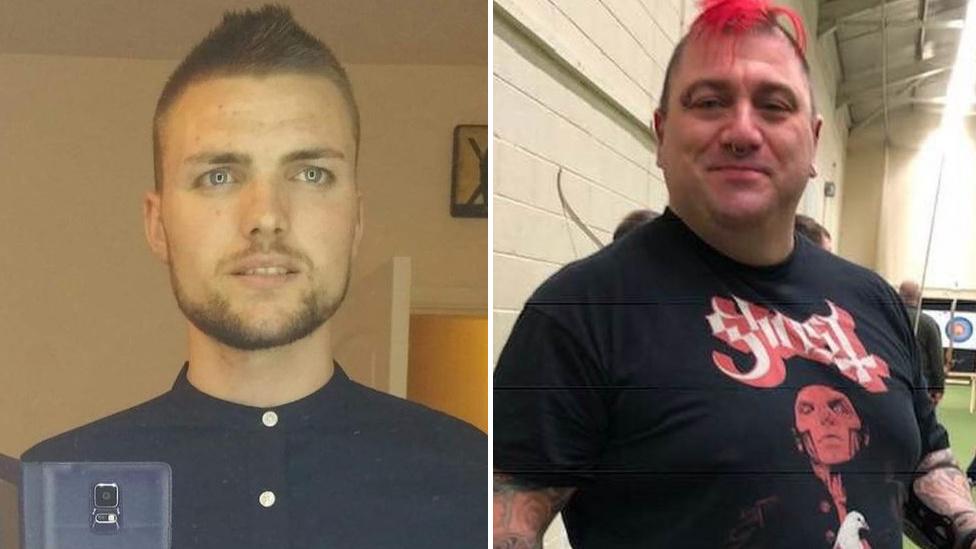Sheffield: Widow criticises National Highways' smart motorways plan
- Published

Claire Mercer has campaigned against the use of smart motorways since her husband's death in 2019
A woman whose husband was killed on a smart motorway has criticised plans to increase the number of emergency refuge areas on the M1 in South Yorkshire.
National Highways will install 22 new emergency areas between junctions 30 and 35a in a bid to improve safety.
But Claire Mercer, whose husband Jason died on the M1 near Sheffield, said she did not think the plan would work.
A National Highways spokesperson said smart motorways were "safer than the roads that they replaced".
Mrs Mercer's husband Jason, 44, and Alexandru Murgeanu, 22, were killed instantly when a lorry ploughed into them on the M1 in June 2019.
The pair had pulled over to exchange details after a minor collision.
Emergency areas would be no more than a mile apart, under the National Highways plans.
Previously, they were spaced at a distance of up to one and a half miles.

Alexandru Murgeanu (l) and Jason Mercer were killed in a crash on the M1 in South Yorkshire
Mrs Mercer, who has campaigned against the use of smart motorways since her husband's death, said: "I don't think it's going to make it any safer at all.
"Your car is not going to break down where its convenient for you, it will break down where it breaks down."
National Highways' executive director Duncan Smith told Look North: "Smart motorways are safer than the roads that they replaced, but we know that there's more that we can do to make motorists feel safe, which is why we're introducing these new bays."
'Half measures'
Data shows that smart motorways have a lower accident rate than conventional motorways.
But if a vehicle comes to a stop in a live lane, then the risk of being killed or seriously injured on a smart motorway is higher.
Mrs Mercer, who wants the hard shoulder to be reinstated on all motorways, said: "They keep introducing these half measures, patch jobs and compromises.
"They should be admitting it's not worked and it wouldn't cost a single penny to turn the first lane off and we'd have the hard shoulder back."
At an inquest in 2021, coroner David Urpeth said the lack of a hard shoulder contributed to Mr Mercer's and Mr Murgeanu's deaths and that smart motorways "present an ongoing risk of future deaths".
A National Highways spokesperson said their data "continues to show that, overall, all three types of smart motorway are safer than conventional motorways in terms of deaths or serious injuries."
A Department for Transport (DfT) spokesperson said the government had already cancelled plans for all new smart motorway schemes, recognising public concerns.

Follow BBC East Yorkshire and Lincolnshire on Facebook, external, X (formerly Twitter), external, and Instagram, external. Send your story ideas to eastyorkslincs.news@bbc.co.uk, external
Related topics
- Published19 January 2024
